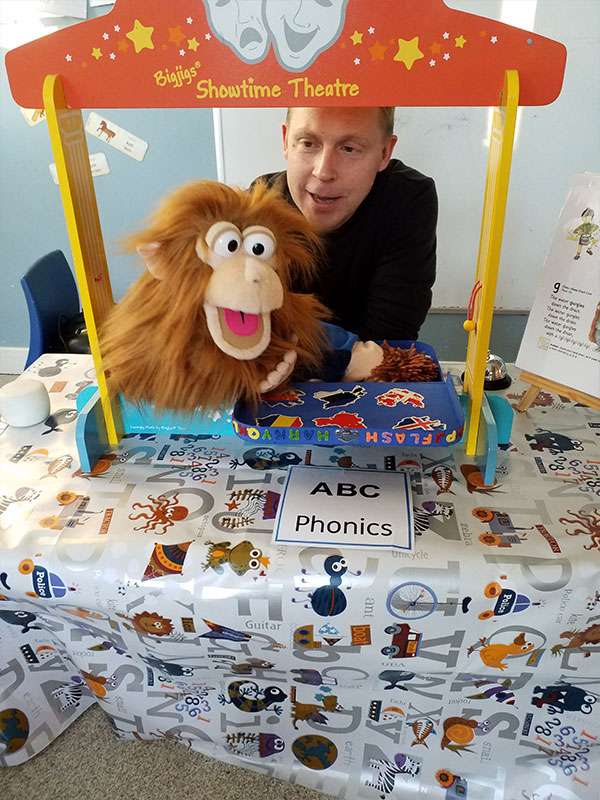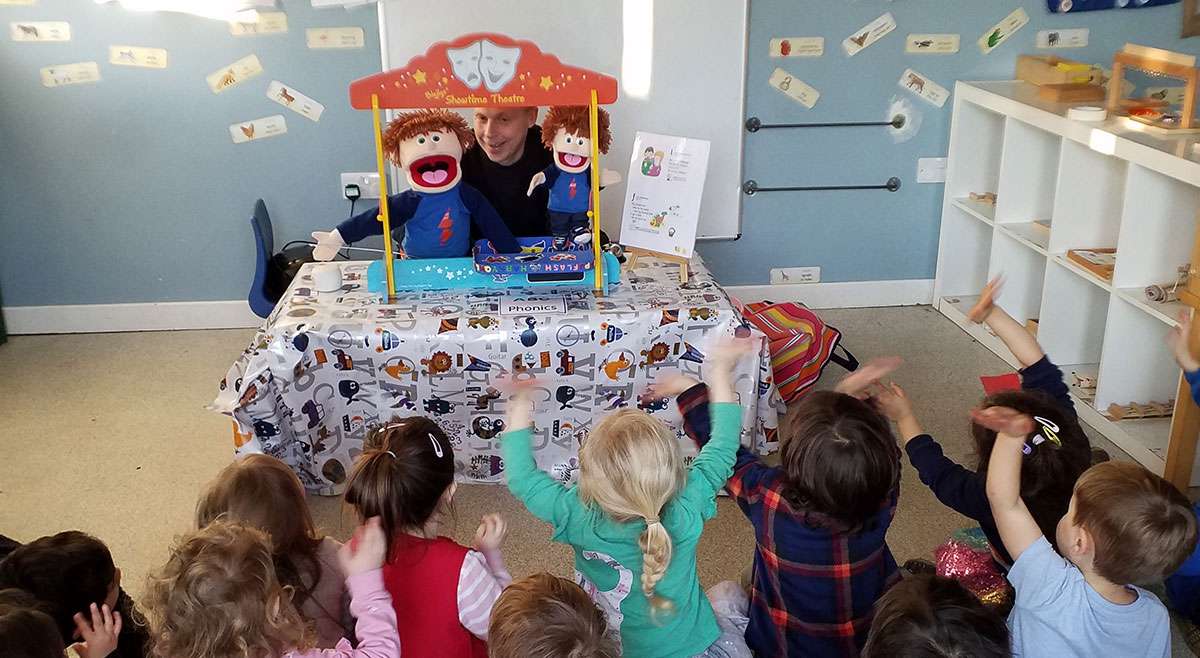Written by Christopher Byers, Butterflies Teacher & SENCO Lead Once upon a time in a classroom, not so far away was a stripy bag, laden with a collection of individual curiosities, of varying sizes and different personalities. If you haven’t twigged already about the focus of this article from the title, which I guess you have, I can confirm that I am talking about the puppets, which is used during our teaching practice, in the preschool room.
I have always had a love for puppets and the mastery of the puppeteer that wields them, growing up watching television shows like “The Muppet Show” and shows closer to home like ITV’s “Rainbow”, where I became an avid fan of the antics of Bungle, George and Zippy. So much so that last year, I chanced upon what I could only literally describe as the golden ticket from Roald Dahl’s, “Chocolate Factory” book, a chance for a meet and greet with Mr Ronnie Le Drew.
To those who probably don’t know who this mystery man is, or what makes meeting him such a momentous event, I can happily reveal that he was a puppeteer and later also the voice of my childhood hero, the aforementioned Zippy! It was fantastic getting to know the ins and outs of what got him started in puppetry and I also got the chance to talk to him about how I use puppets with more of a direct educational purpose, with the children in the preschool room.


Each of the puppets has their own distinctive personality and serves different purposes. For example, we have a small owl, who goes by the name of “Dr Hoot”, whose head can swivel 360 degrees around and I use it to maintain the children’s attention; he literally becomes the eyes in the back of my head. There’s the little puppet “Flash”, who was the first addition to the puppet collection.When I started at Willows, I was asked to lead the phonics sessions, due to my previous background as a Primary school teacher, where I began using puppets during my PGCE course, all the way through to teaching in a primary school.
The puppets are used to gain the children’s attention, with the puppet whispering secret words to me, which is relayed to the children. The children then will learn the new Jolly phonics songs together and then sing the songs back to their new hero, a tiny little boy made of felt. The theatrics of using puppets with children is mesmerising. They can see that he is clearly on the end of my arm but are captivated by the fantasy that is being played out before them. Puppets can also be used to regulate behaviour, and the Big Brother puppet “Barry”, is used just for this reason. He may be pulled out of the bag to diffuse unwanted challenging behaviours and takes on the Big Brother role of the “Flash” puppet.Anxiety issues can be eased with puppets, as they can act as a friendly face between a child and an adult. Our orang-utan “Clyde” is a prime example of this, he’s a full-sized puppet and is perfect for hugs and giggles to alleviate any anxiety on the spot.
It has also been discovered that puppets are a useful tool to help children with Special Educational Needs, maintain their attention. “A new study by researchers at the Yale Child Study Centre* demonstrates that puppets can attract and hold the attention of children with autism spectrum disorder (ASD), raising the potential for developing more engaging therapies that strengthen social engagement and facilitate learning. The study, published in the journal Autism Research, is the first to test anecdotal evidence that children with ASD, like most youngsters, pay attention to puppets.”I owe a great debt to people like Ronnie Le Drew, as without them I wouldn’t have grown this wonderful passion, for my fuzzy felt friends who have become, quite possibly, the greatest teaching assistants a teacher could ever have. If you are a Parent, Teacher, Uncle, Aunt or Grandparent and you love kids, why not literally try your hand, at puppeteering today!*Cummings, Mike. “Study Finds Children with Autism Respond Well to Puppets.” YaleNews, 5 Aug. 2021,news.yale.edu/2021/08/05/study-finds-children-autism-respond-well-puppets.



